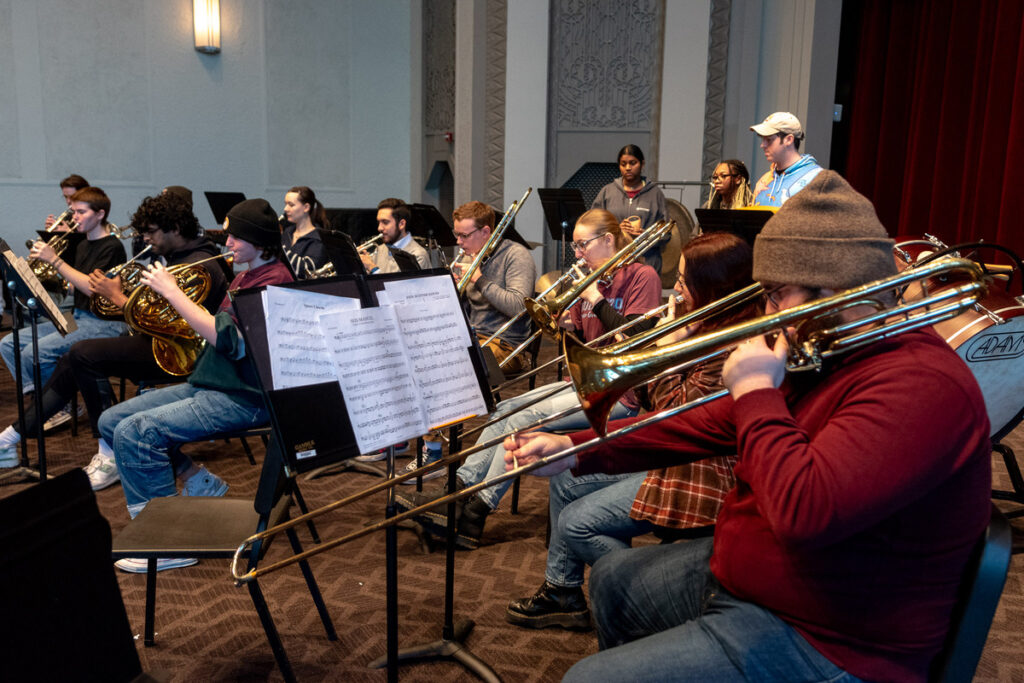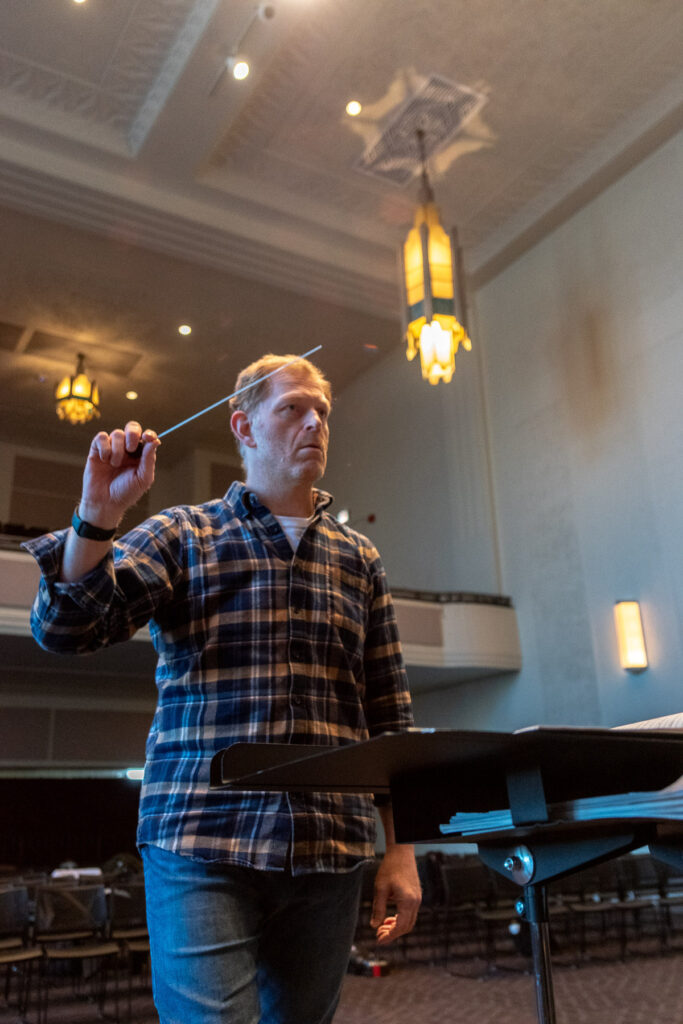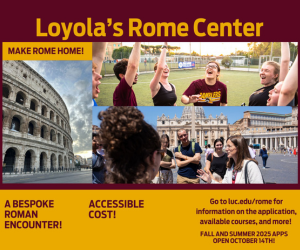Classical music doesn’t tend to dominate the Billboard charts — but it still runs through the minds and hearts of students.
Classical Music: Loyola’s Instrument for Human Understanding
Roaring through the headphones of Loyola students is the soundtrack of a generation. For some, this includes contemporary artists like Noah Kahan or Taylor Swift. For others, it’s the sound of crisp violins and trumpets — a playlist made timeless through composers like Mozart and Bach.
For classical music enthusiasts like Lexi Schnelker, a political science major, the classical arts bond familial tradition to the college experience — engaging a familiar passion in a new setting.
“It was something that brought my mom, my sister and I together because we all play instruments and I really didn’t want to lose that,” Schnelker said.
The second-year said she grew up on classical music, having been enrolled in piano lessons by her parents at age 6. After being required to take a music class in middle school, Schnelker drew inspiration from her mother’s high school flute experience, following in her footsteps throughout grade school and college.
Akin to her motives for learning the flute, Schnelker said she also started writing orchestral music as an opportunity to spend time with her sister — arranging a score for interconnectedness through music. Now, Shnelker continues to play the flute as a member of Loyola’s Wind Ensemble, a one-credit course offered through the Department of Fine and Performing Arts.
Engaging with classical music as Loyola students is not a wholly unique concept, according to Schnelker. She said student interaction with classical music — from playing an instrument to listening to a classical playlist — is “more common than people think.”

Encouraging student exposure to classical arts extends beyond the life’s work of art history and Interdisciplinary Honors Program professor Paula Wisotzki, who said capturing student interest can be a difficult sell.
“For me, it’s just a different kind of learning and a way to analyze who we are as human beings and what that means,” Wisotzki said.
Dr. Frederick Lowe, the conductor and director of Loyola’s music program, said he estimates 70% of students in Symphony Orchestra, Wind Ensemble and University Chorale are not music majors. He said he attributes this to students whose college experience may mirror his own — meaning they have a love for music despite not majoring in the subject.
“It’s where I met many of my friends and had many of my most memorable, formative experiences as a high school kid,” Lowe said. “I got to college and thought, ‘I want to keep this going.’”
Additionally, Lowe said students’ desire to engage with a creative activity and to have a community contributes to their enrollment in an ensemble.
While all ensembles have an audition process, many of the larger groups don’t turn away students. Even with ensembles having a vast range of abilities and technical skills, Lowe said he doesn’t think the groups are held back from putting on a solid performance.
Brady Flanagan echoed the prevalence of classical music exposure on campus. The second-year neuroscience major said he partially credits Loyola’s Interdisciplinary Honors Program for his exposure to orchestral and operatic music. Flanagan said he felt a highlight of the program involved listening to various types of music and participating in lecture and discussion on the music.
Part of the attempt to expose students to classical music is rendered by assigning first-year students to attend an opera performance. Wisotzki said the interdisciplinary nature of opera was one reason the program tries to include it in the curriculum.
Wisotzki said studies show that without exposure to major cultural institutions — museums, orchestras and operas — in young adulthood, adults are more likely to never participate.
“I believe it is a crucial instrument to understanding what it means to be human,” Wisotzki said.
Avery Simmons, a second-year music major, said she was introduced to classical music at a young age but has always been interested in singing. Despite her passion for music, Simmons started her college career as a biology major with aspirations of going into the medical field.

In the second semester of her first year, her path changed to music with a particular passion for opera.
Her interest stemmed largely from the dramatic spectacle of opera performances which she said “heightens the emotional experience.”
For Simmons, the bounty of classical music extends beyond her career aspirations — it has also gifted her a community. She said singing with others who shared an interest in classical music helped her get over her childhood shyness, offering a sense of comfort she didn’t feel from her earlier contemporary music studies.
For Wisotzki a considerable element repelling people from classical music may be its audience. The makeup of classical arts audiences often skews old and white given that arts in the U.S. are often funded by the one percent, Wisotzki said.
The New York Times reiterates the older audiences citing a average age of 57 for audience members of the New York Philharmonic and the Metropolitan Opera in the 2020 season.
Interested in changing this demographic, Wisotzki said she hopes to contribute to students taking advantage of the world class institutions available in Chicago.
Students without instrumental experience have the opportunity to get involved with classical music through a selection of music history courses and beginner piano, voice and guitar courses, Lowe said.
Featured image by Amber Cerpa / The Phoenix





